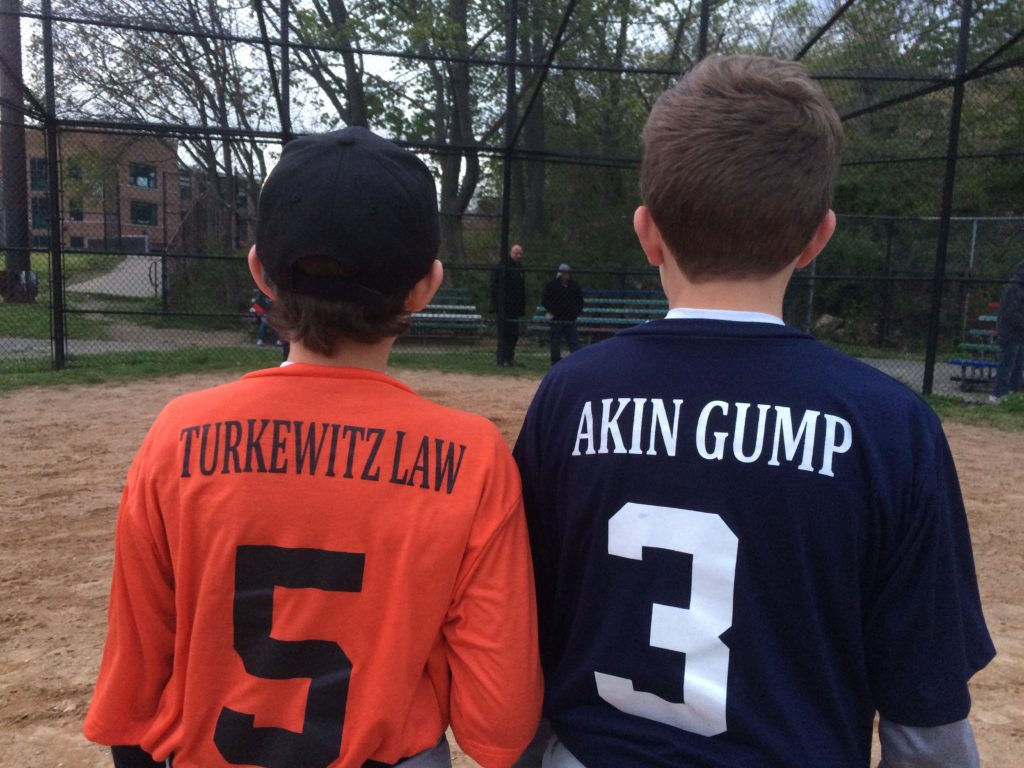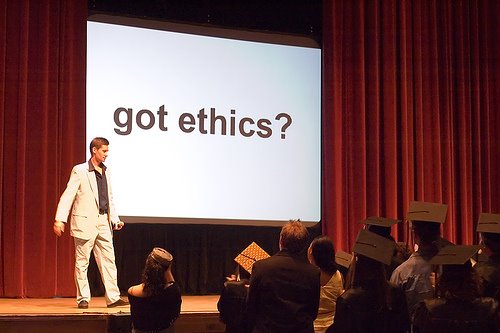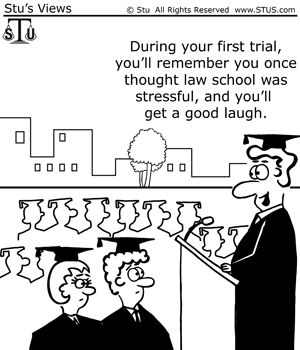 Last week while out on the ball field, I couldn’t help but notice the names of the sponsors on the team uniforms. The match-up was a classic one, my firm against Akin Gump: BigLaw v. SmallLaw.
Last week while out on the ball field, I couldn’t help but notice the names of the sponsors on the team uniforms. The match-up was a classic one, my firm against Akin Gump: BigLaw v. SmallLaw.
And it got me thinking about a subject I’ve never broached here: What kind of firm does the client want, a big one or a small one?
The subject comes up often on the consumer end of the law — personal injury, criminal defense, immigration, matrimonial, etc. The client can go with the small 1-3 lawyer firm or the much bigger outfits. (Bigger in this type of law is 20 or more. We aren’t talking hundreds or thousands of lawyers.)
Will your case get individual attention, or be one of thousands of injury/immigration/whatever cases that the firm handles, assembly-line style? Some people like small firms with personal attention, and others like larger firms. It’s a matter of personal preference.
So here’s my perspective, from the small law side as a solo practitioner for the last 25+ years, and it comes from litigating against many Big Law firms: The bigger the firm, the more likely that this matter is not a client but a file. At 5:00 o’clock the partner in charge may yell out, “Yo Lisa, here’s the Smith file, please read it and take the deposition tomorrow.” Or perhaps, “Go pick a jury.”
What is often missing on the Big Law side is continuity. If the same person handles the file from soup to nuts, then many small details are appreciated. The client is not a file with an injured shoulder, but someone who had a passion for cooking who can’t lift heavy pots and fulfill her dream of opening a catering business. Innumerable details from client meetings and depositions can more easily be retrieved when necessary at trial, because they were learned over the course of a few years, not over the course of a weekend.
Given that law firms are likely to grow and consolidate in the future as larger firms try to cross state lines by acquiring smaller practices in other states, this is not an insignificant issue. The bigger the firm, the more institutionalized it is, the less likely there will be personal attention to the client and to the details.
On the flip side — and I need to always appreciate that other side — if the firm is small there will be inevitably be scheduling conflicts for which other lawyers are needed. The lawyer you hired may not be able to handle a certain conference or deposition because s/he is engaged elsewhere. But this merely puts the clients where they would have been anyway with a larger firm, with a new lawyer handling a particular aspect of the case.
There are some clients, of course, who simply like the comfort of Big. But big doesn’t mean better, particularly in law. Clients don’t want to be treated like files, but like people.
Personal service is vanishing in the country. From outrageous treatment on airlines, to godawful voicemail systems that won’t let you find a human to speak to big box stores with no sales help.
But this is law, which is very much a profession of service. There are no shortcuts. Big won’t get you more.
And, just for the record, about those uniforms and that game:
- This is the kind of advertising that I like; and
- Small Law won the game.



